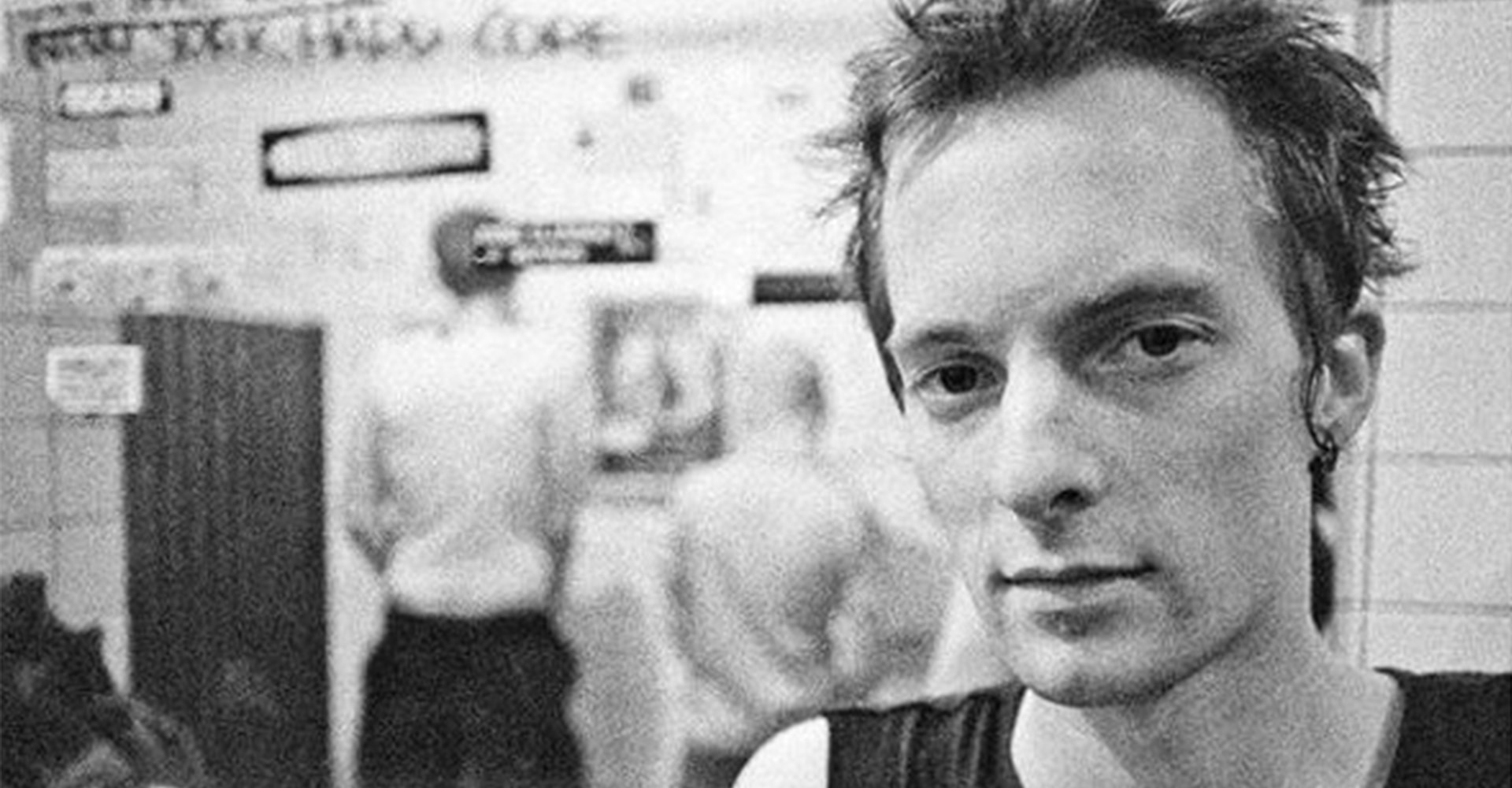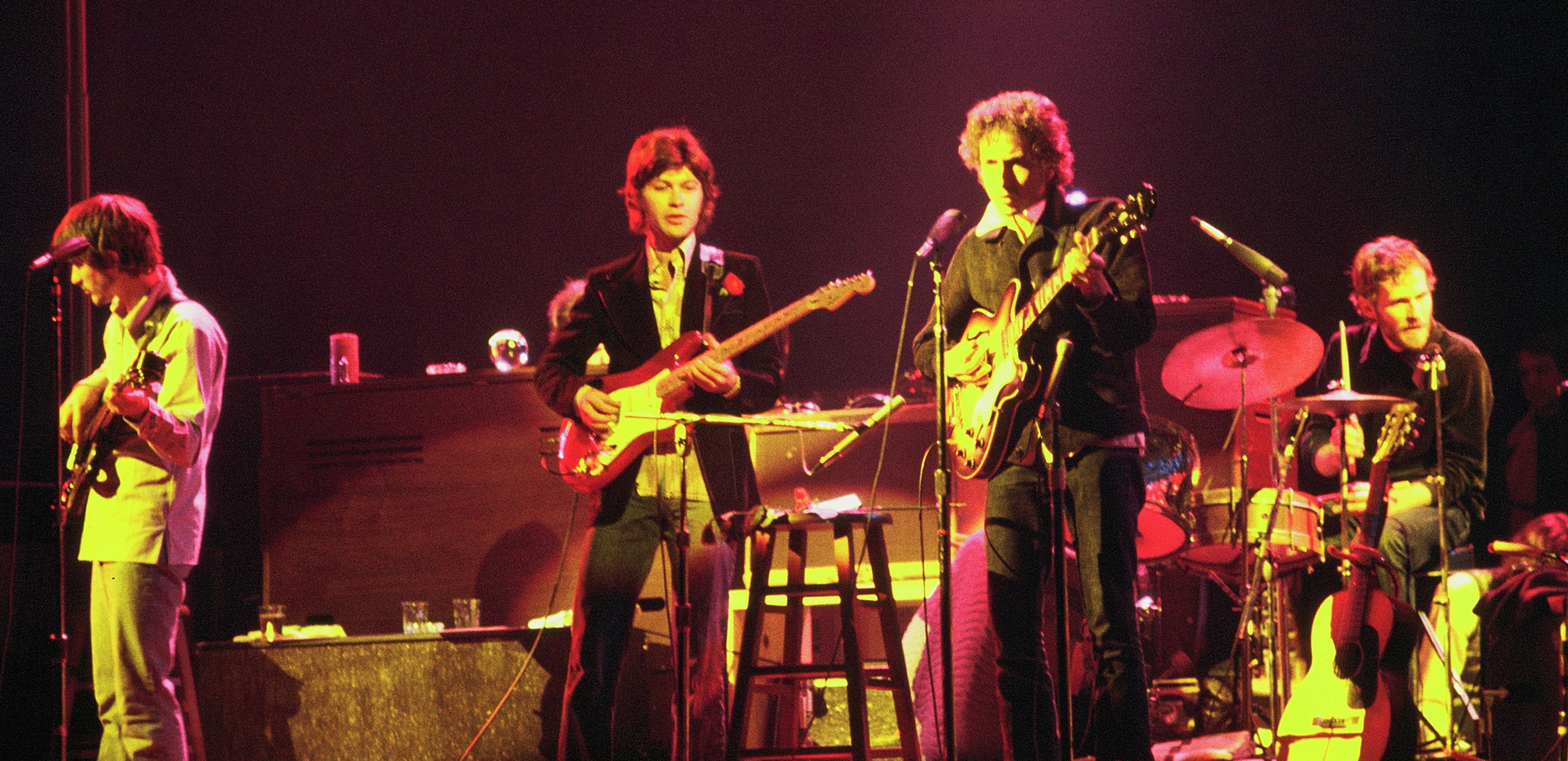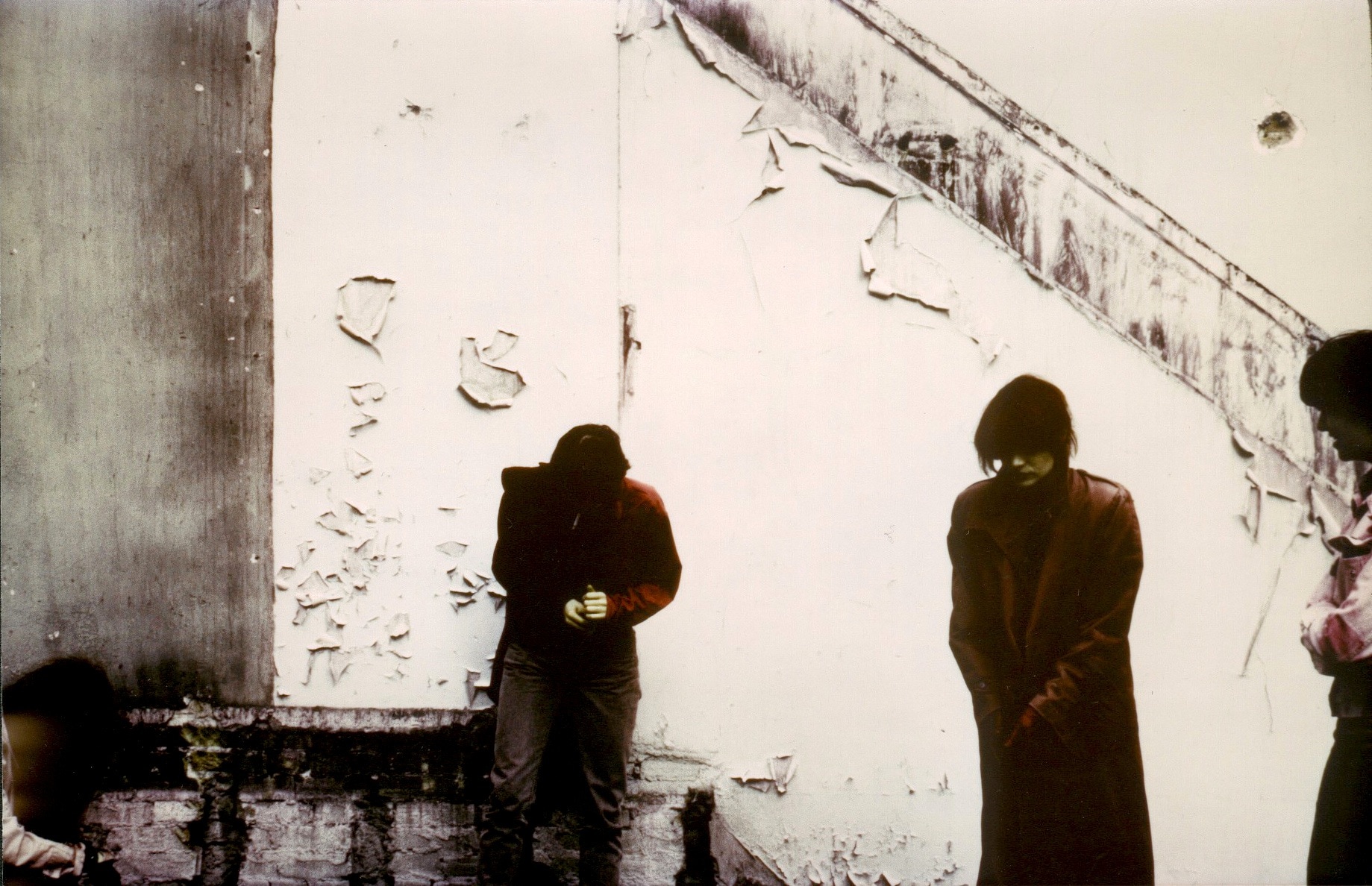
Brave, boundless, and breaking barriers are a few words to describe the late Jackie Shane (1940–2019). A talented live performer, Jackie's 1962 single "Any Other Way" became her most-famous hit, its lyrics embued with a deeper meaning about self-acceptance.
Largely unknown outside of Toronto during her life, many of Jackie Shane's songs were re-released in 2017. The box set was nominated for a 2018 Grammy for Best Historical Album, garnering an international resurgence of interest in her music and her life.
Reluctant to interviews, Jackie broke her silence shortly before her death in 2019, sharing her story with a select few.
A Nashville Start
Born a boy in 1940 in Nashville,Tennessee, Jackie knew by the time she was 13 years old that she was meant to be a woman. She grew up with her caring and accepting mother and maternal grandparents, singing in church choirs, bands, and school glee clubs.
To live as an openly gay man in the 1940s and 1950s meant enduring constant discrimination and even violence. However, Jackie may have seen appeal in a life on the stage. Several prominent musicians of Jackie’s youth openly embraced gender fluidity while performing in the South: In the 1940s, rock and roll legend Little Richard performed as a woman, Princess LaVonne, in a traveling tent show.

Topps trading gum card of Little Richard from 1957
Licensed via Creative Commons
Journey To Canada
Jackie’s experience of racism, discrimination, and violence against Black communities during the era of Jim Crow convinced her to leave the southern United States.
Joining a travelling musical troupe in 1959, she made her way north to Detroit, crossed the border, and headed to Montreal.
While in Canada, Jackie met legendary trumpeter Frank Motley. She joined his band, Frank and the Hitchhikers, and became the star of their show. Motley often introduced her as Little Jackie Shane as she stepped on stage.

Toronto Star, November 1 1967
The Saphire Tavern
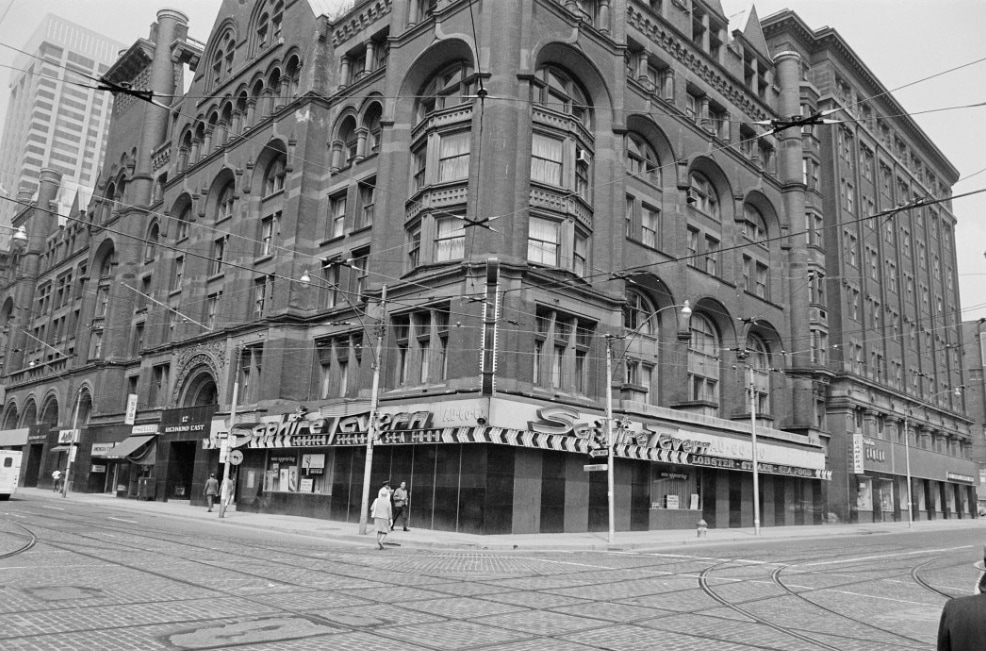
City of Toronto Archives, Fonds 2032, Series 841, File 17, Item 22
Yonge Street was Toronto's Entertainment District during the 1960s, with music and entertainment in every bar, tavern, and restaurant. One such venue, known as the Saphire Tavern, became Jackie Shane's favourite place to perform. Located at the northwest corner of Richmond and Victoria, one block east of Yonge Street, Jackie performed first at the Tavern in 1963. After travelling and performing all over North America, she returned to the Tavern for a ten-week engagement in 1967. Jackie was known for both her wit and wisdom while delivering her off-the-cuff remarks and monologues on stage.
Jackie liked Toronto, and stayed for almost a decade. Jackie was proud of who she was despite being surrounded by a predominately white, conservative mentality. Tabloids and newspapers questioned whether she was a man or a woman, and much of the historical material written about her uses male-gendered pronouns.
This online exhibition uses third-party applications that may not be compatible with your current version of browser. Check with your organization’s web administrator if you are unable to access content from these channels in the exhibition, or try to access this webpage from another browser.
Keyboard controls: Use arrow keys to rotate the object and page up/page down to zoom.
Imagine enjoying a cocktail (or a Shirley Temple) at the Saphire Tavern, swirling the ice around in your glass with this yellow mermaid swizzle stick while listening to Jackie perform on stage. Courtesy of Emily Berg
A Swizzle Stick Souvenir
It's just a piece of plastic, but few items capture the unique style of the 1960s bar scene like the swizzle stick. This mermaid-shaped swizzle stick from the Saphire Tavern would have been found in most glasses served to Tavern patrons, whether to spear an olive in a martini or a maraschino cherry for an old fashioned cocktail.
The original Yonge Street address of the Saphire Tavern is stamped on the reverse. Like matchbooks and coasters, swizzle sticks were an important part of the tavern's branding, long before social media or other digital ads could encourage customers to return for another drink or show. Customers at the Saphire would have pocketed these swizzle sticks as souvenirs as a way to remember the night they heard Jackie Shane or Frank Motley.
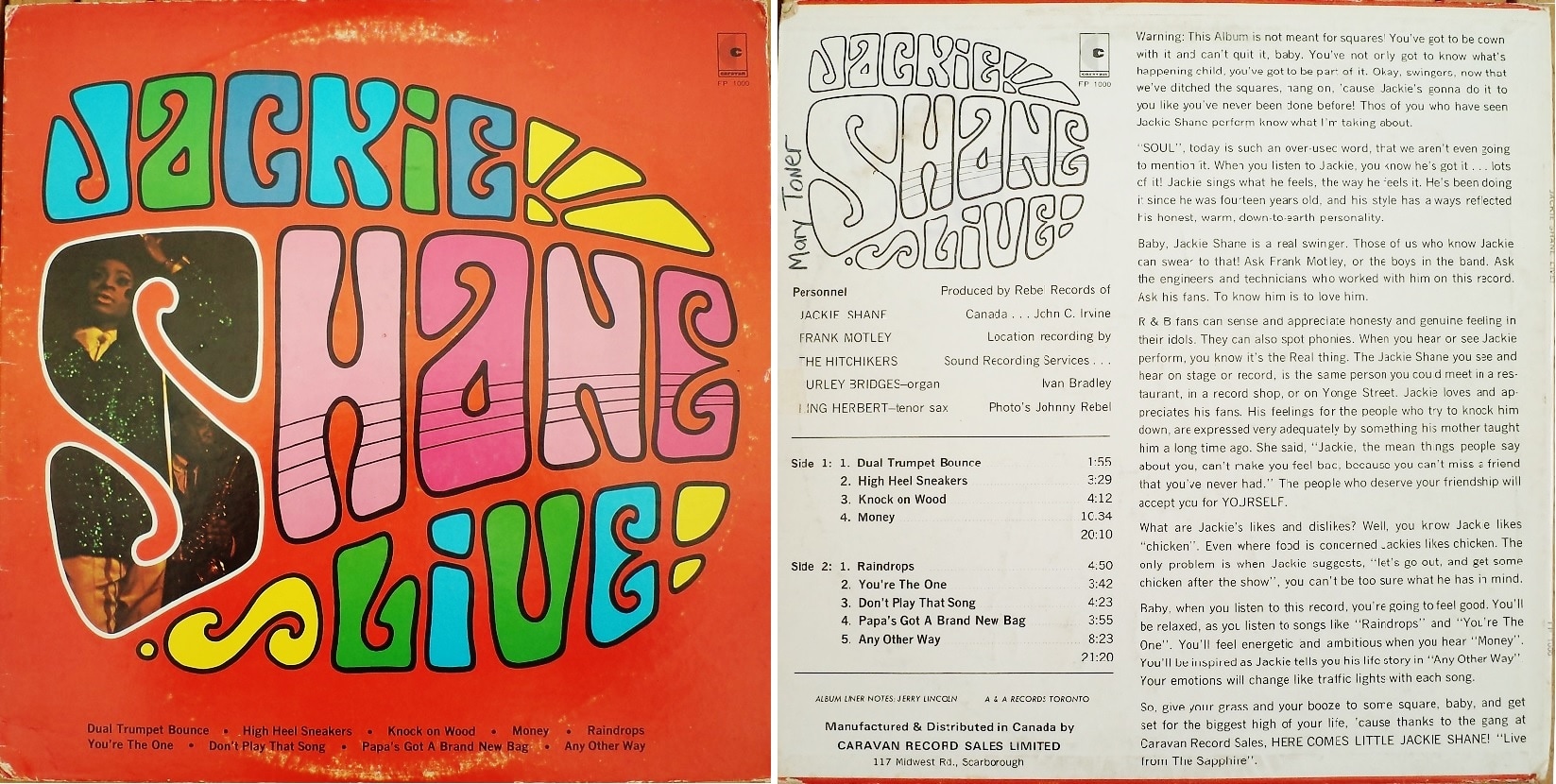
Jackie Shane Live, released in 1967, was Jackie’s first full-length album and included her soulful hit single “Any Other Way” -- the song she was most known for. Written by R&B artist William Bell, Jackie’s rendition gave the song new meaning. There was now a double entendre with the word “gay” – meaning both happy and a sexual orientation. Her cover version became widely known, hitting the Canadian charts in 1967.
Courtesy of Caravan Record Sales Limited
Listen: Any Other Way
Tell her that I am happy,
Tell her that I am gay,
Tell her that I would not have it any other way.— Lyrics by William Bell, performed by Jackie Shane
This online exhibition uses third-party applications including Spotify and YouTube. Check with your organization’s web administrator if you are unable to access content from these channels in the exhibition.
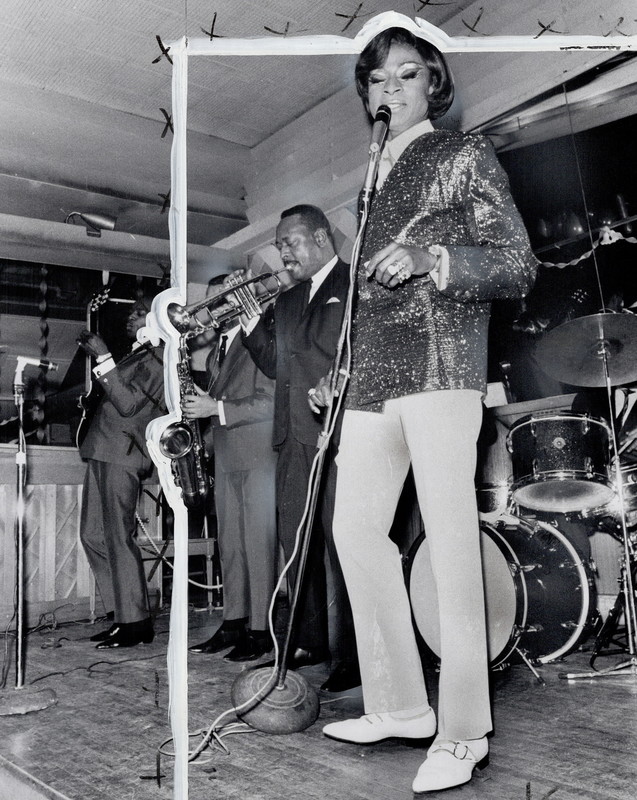
Wearing a shimmering sequined pant suit, make-up and fake long lashes, Jackie sang at Toronto’s Palais Royale ballroom, backed by Frank Motley and the Hitchhikers in 1967.
Photo by Jeff Goode, courtesy of the Toronto Star
One cannot choose where one is born, but you can choose your home.
I chose Toronto. I love Toronto. I love Canadian people.
—Jackie Shane, Interview with CBC's "q", February 2019
Jackie Shane left Toronto without telling anyone in December, 1971, moving first to Los Angeles to be with her elderly mother and then back to Nashville.
After her mother died in 1997, Shane lived a quiet and private life. Rumours speculated about her whereabouts. Many weren’t certain Jackie was even alive.
Activism and Equity
After Jackie Shane left Toronto in 1971, Toronto’s LGBTQ2+ communities continued to experience atrocities and struggled for equal human rights. In February 1981, officers of the Metropolitan Toronto Police arrested over 300 men at local Toronto bathhouses for indecent behaviour. Those arrested were targeted specifically because of their sexuality and associations with Toronto's gay communities. This event, known today as the Bathhouse Raids, was a turning point for Toronto’s gay communities, sparking protests and demands for justice and equity.
The 1970s and 1980s were also a time for political activism, especially in the arts. LGBTQ2+ culture flourished to dominate mainstream music and influence local, national, and international politics. Yet, homophobia, racism, discrimination, and bullying unfortunately continue to this day.
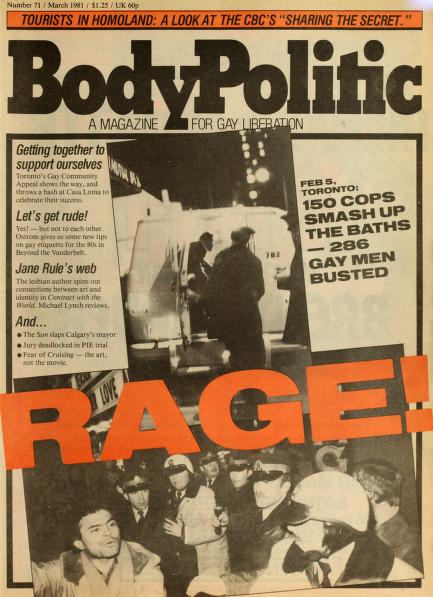
This cover from the March 1981 edition of the Body Politic, Canada’s first major national gay magazine, reflects the anger and activism sparked by the Bathhouse Raids. Use the Zoom feature to explore the other headlines from this important volume in LGBTQ2+ journalism.
Body Politic, Volume 71, May 1981, courtesy of the Canadian Museum for Human Rights and the Pink Triangle Press
Listen:
Shaun Brodie
& the QSO
Jackie Shane’s story is a powerful one, and one that continues to bring hope and comfort to many.
Shaun Brodie, founder and artistic director of Toronto’s Queer Songbook Orchestra (QSO), a chamber pop ensemble dedicated to exploring and uplifting queer narrative in pop music, shares how Jackie’s story has been used in QSO performances through narrative stories and music.
Listen to Shaun Brodie describe how the songs of Jackie Shane are powerful elements of their performances, affecting both performers and audience members alike.
This online exhibition uses third-party applications including Spotify and YouTube. Check with your organization’s web administrator if you are unable to access content from these channels in the exhibition.

Recorded for Heritage Toronto, 2019.
View TranscriptShaun Brodie: So with Jackie Shane, it's sort of a perfect example of the type of historical story we would share.
So looking back over, you know, several generations of pop music and sort of investigating and seeing where…whether might be narratives that that are not that well known or that have been obscured over time.
And Jackie Shane, although her stories become much more known in recent years, you know, for a long time, it wasn't.
And I mean I myself didn't know her story until the last few years when it became just much more known.
And I mean her songs are amazing.
So we have this great joy now in being able to like include a Jackie Shane song in our set and….
It's nice too because…I don't know, some of the stuff we do it tends to be more on this slower side, kind of ballad and there's the…
you know with the sort of vibe of the show, it tends to be we don't do a lot of barnburners, you know or like really up tempo stuff.
With Jackie Shane, it’s just such a different vibe and such a good feeling vibe that it changes the whole dynamic in the room because people just….they just…you can't help but like feel really good hearing “Any Other Way”, you know?
So it's really, it's just really so nice and to…you know, to be able to share the story of a trans woman of color who was living in Toronto in the 60s where, you know, you weren't seeing a lot of trans women of color at that time.
And she, from what I've read and understand, was just very, you know, unapologetic about it. And this is who she was and she wasn't going to change, you know, for anybody. And then this whole mystery of her sort of moving on and nobody knowing where she was.
And yeah, I mean it's a fascinating story and it's really just sort of in line with what we're doing is to sort of explore that and be able to share it with more audiences who maybe have not heard yet about who she was.
Lessons from Jackie
After the release of the 2010 CBC documentary I Got Mine: The Story of Jackie Shane by Elaine Banks, Jackie Shane’s story began to be more widely known. But Jackie remained a private individual, giving few interviews to journalists. In early 2019, Jackie Shane opened up about her story with an exclusive interview to CBC’s arts program q.
Only two weeks after the interview, Jackie Shane passed away peacefully in her sleep at her home. She was 78.
Assertive and unapologetic, Jackie taught us many things. She taught us it is okay to be different, to believe in yourself: be proud of who you are and what you have accomplished.
I have never felt that I had to change or do anything that wasn't natural to me. I will never, ever be some kind of wishy-washy creature that pretends or lets others guide me.
I guide my life. It is mine. No matter what anyone says, I'm going to be Jackie. That's all I can be. That's all I know. It's what I feel from my heart and my soul.
—Jackie Shane, CBC q interview, February 2019
Dive Deeper
Any Other Way: How Toronto Got Queer. Edited by Stephanie Chambers et al. Toronto: Coach House Books, 2017.
Any Other Way. Box-set album. Los Angeles: The Numero Group, 2017.

